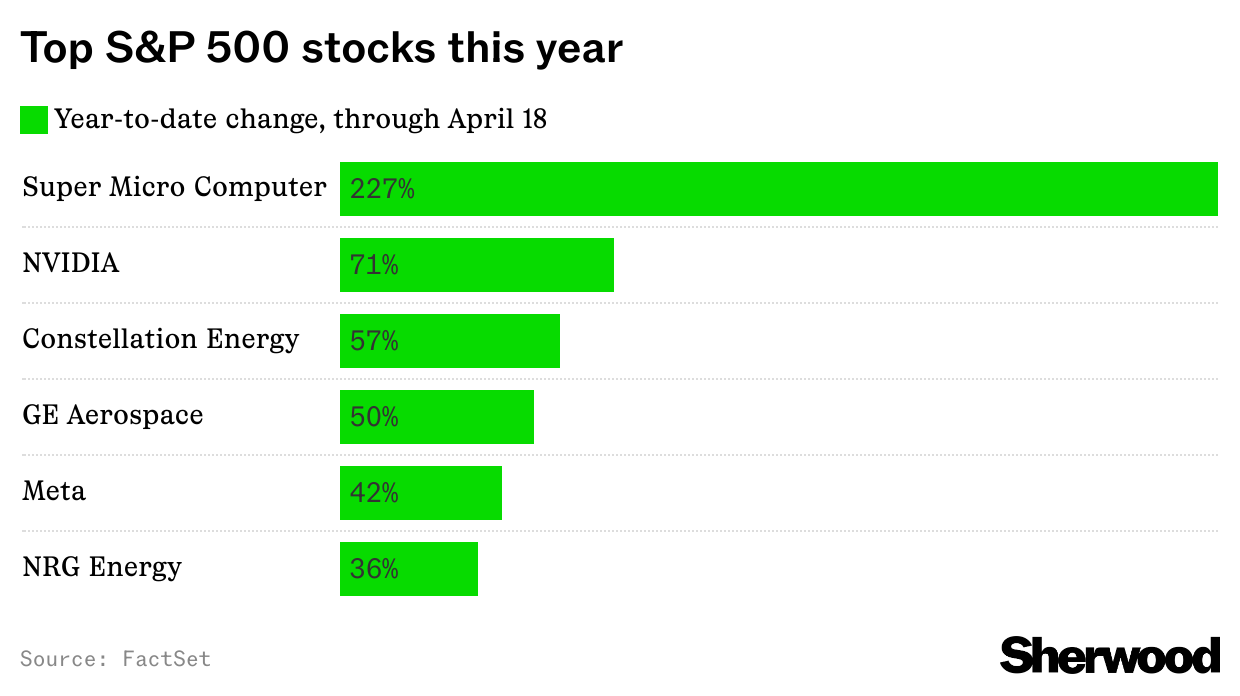Hey Snackers,
Prince Harry is trading his crown for a pair of Allbirds: he's joining a Silicon Valley startup as chief impact officer — aka: Count of Carbon Footprince.
Markets ticked up yesterday as investors rotated into "Reopening Stocks" on signs of economic recovery.
Canal
The Suez fiasco: oil prices jump as the world's favorite shipping shortcut gets blocked
If all roads lead to Rome... then all waterways lead to the Suez. Egypt's famous canal is the most important shortcut in global shipping. It provides the fastest link between Europe's Mediterranean waters and the seas surrounding Asia. Instead of going all the way around Africa, ships can sail straight from Saudi Arabia or India into Europe. So it's unfortunate that...
- The Suez Canal has been blocked by one of the world's largest container ships. The "Ever Given" has been ever-stuck for three days, causing a major traffic jam.
- "Days to weeks"... How long it could take to move the ship. Experts are digging sand from under it, and trying to straighten it with tugboats.
The Diagon Alley of the seafaring world.... A whopping 12% of global trade passes through the Suez. This Ultimate Traffic Jam is bringing billions of dollars of trade to a standstill: each day of blockage disrupts ~$9B+ worth of goods. Yesterday, at least 150 ships loaded with cargo were waiting to pass through the Suez — and many are carrying oil from the Middle East.
- Oil prices soared yesterday, as massive oil tankers were halted by the jam. ~10% of total seaborne oil trade passes through the Suez.
Technology evolves, but some things never change... We’re used to seeing things magically appear at our doorstep. We can get gas in the tank at the swipe of a card, and food in our hands with a tap. But the “backend” of logistics that provides the materials fueling our lives still relies on a few key routes. This Suez fiasco highlights the potential fragility of global trading systems — and the crucialness of the un-techy parts.
WHM
Women and Money: how women earn, save, and invest compared to men
Inside the wallet… In honor of Equal Pay Day and Women’s History Month, we’re diving into how American women earn, save, and invest.
Earning... The first step in money management: having $$$ to manage. Women are the sole or primary breadwinners in 40% of US households with kids. They outnumber men in the college-educated workforce, and have received more college degrees than men since 1981. But they still earn less: an average of 82 cents for every $1 men earn (aka: the gender pay gap).
Saving... Even though women earn less, they're better savers. Women allocate more of their money to savings than men (41% vs. 35%), and save more of their salary (9% vs. 8.6%). Women are also more likely to join workplace retirement plans. Still, men end up with higher net savings: women’s average total retirement savings is just $23K — men’s average is over 3X higher at $76K.
Investing... When it comes to investing, women tend to take a more cautious and measured approach than men. Women are good at saving money, but not as good at placing it somewhere where it has the potential to grow.
- Women invest less: Only 52% of American women are stock owners, compared to 58% of men. And that includes their retirement investments.
- Women invest more conservatively: Women tend to take a longer-term "buy and hold" view, versus taking frequent action. The average female investor also keeps 68% of her portfolio in cash and cash equivalents, compared to 59% for men.
- Women outperform men: Decades of studies have found that women earn better returns than male investors in the stock market.
Women have plenty to be confident about… They’re disciplined savers and strong investors — but they tend to be less confident in their financial prowess. Only 9% of women believe they make better investing decisions than men, despite evidence to the contrary. Women also tend to be less confident that they’ve planned adequately for retirement, and they scored lower as a group on FINRA’s financial literacy test. Women have made a lot of financial progress over the past decades. But to truly level the financial playing field, Americans need to close the pay gap and improve financial literacy for all.
Unpacked
Snacks Unpacked: The Gender Pay Gap
March 24th, 2021 was Women’s Equal Pay Day. It marks the day into the year on which women, on average, have earned what men did in 2020. That’s nearly 15 months of work to reach a man's yearly pay.
The What: Women working full-time earn an average of 82 cents for every $1 men earn. For Black and Hispanic women, the gap is even wider.
The Why: A few major reasons why women get paid less than men...
- The “Motherhood Penalty”: Mothers are offered lower salaries and fewer promotions than women without children, as well as men. The result: mothers earn only 73% of what fathers earn. Because caregiving responsibilities still fall disproportionately to mothers, women are also more likely to take time out of the workforce, postponing advancement.
- Occupational segregation, when one sex is overrepresented in a job sector, accounts for as much as 51% of the wage gap. Jobs with more men (like construction and IT) tend to pay better, regardless of skill or education level. Jobs that are predominantly done by women (like childcare and education), are less valued in the labor market. And even within the same fields and roles (like: HR manager), men tend to be paid more than women.
What else we’re Snackin’
- Vactastic: President Biden sets a new Covid vaccine goal of 200M shots within his first 100 days (up from 100M shots, which was reached last week).
- Smoke: Congress grilled the CEOs of Facebook, Google, and Twitter yesterday about their handling of misinformation and extremism.
- Matched: Match-owned Tinder will let users gift Lyft rides to their dates through the Tinder app.
- Quibye: GM appointed tech veteran (and former CEO of Quibi) Meg Whitman to its board, which is now majority-led by women.
- Cont'd: AstraZeneca releases updated data showing that its Covid vaccine is 76% effective, slightly lower than previously shared.
Friday
- Consumer sentiment index
Authors of this Snacks own shares of: Google and GM
ID: 1580040
.png)

